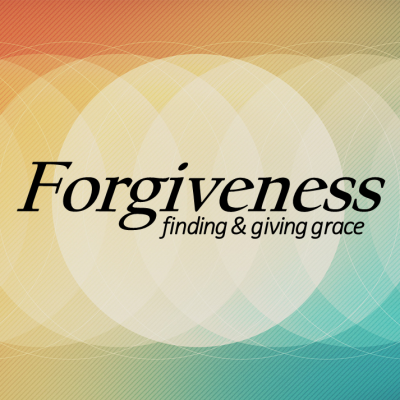By Pastor Brian Wipf
It’s quite common to hear thoughts or sentiments like, “I just couldn’t forgive myself,” or “You still need to forgive yourself.” But is that the right way to think? Is it true that we need to forgive ourselves for the sins and mistakes we have made?
Ask yourself this question: when does the Bible tell us to forgive ourselves? Or where would you go to support the idea that you need to forgive yourself? If you’re scratching your head about this or frantically searching your concordance to see where those verses are I’m not surprised. It’s because the Bible never talks about forgiving oneself.
That’s a helpful guide that I use for myself. I want my mind and thoughts to be biblical, meaning, I want to think the way the Bible talks and writes. And since the Bible doesn’t ever address forgiving oneself, that makes me very suspicious that it’s the way I should talk and think.
There are two errors about forgiving oneself. The first is that it suggests that you are both the victim and the perpetrator. And even more than that, I think it leans towards seeing oneself as a victim. But a victim of what? Your own sins. The Bible never addresses such things. The Bible says our sins are an offense against God; it also says they are grievances against other people. But I don’t remember any verse that suggests you are a victim to yourself. Certainly, there are consequences to our sins and we experience those, but that’s not something we need to forgive.
When we consider our sins and the consequences that follow, rather than thinking we need to forgive ourselves, the Bible says we should repent; that we should turn away from our sins. Trust that God has forgiven us and when we remember God’s forgiving grace we are freed from the guilt of sin and also its power through repentance that leads to life.
Sometimes, we might think, “I can’t forgive myself” because we can’t believe we did what we did. We’re so horrified by our sin, we kind of shock ourselves. That certainly can happen. So, in disbelief, we think we need to forgive ourselves and struggle doing so.
But there’s pride in that and here’s how: it’s a sneaky disbelief that thinks we are not as bad as we really are. Other people might commit that sin (and find forgiveness), but not me! Well, why not you? Are you somehow better than other people that that particular sin is beneath you?
As an example, if you lie (which is one way to sin), you are the kind of person who lies. We call those people liars. We have a hard time going that far. We can admit that we lie; we can even admit we lie more than we should. But to admit that we are the kind of person who lies is a step too far; it offends are pride.
So, sometimes, when we are faced with the reality that we did something that (we think) is outside of our character, in our disbelief we struggle with pride. Instead, my good friends, of thinking we need to forgive ourselves, admit the full scope of your sinfulness and need for God. There’s grace for us. Jesus died for it all. We don’t need to forgive ourselves; we need to see the depth of our need and just how far Jesus has gone to meet that need.
Next time you hear or are tempted to think you need to forgive yourself, remember what you’ve read in this article. Remind yourself that you’re not a victim, but a perpetrator. Remember, pride is always stalking you. But most of all, remember and rejoice that Jesus paid every price and lavishly accepts you because of his grace and forgiveness.
